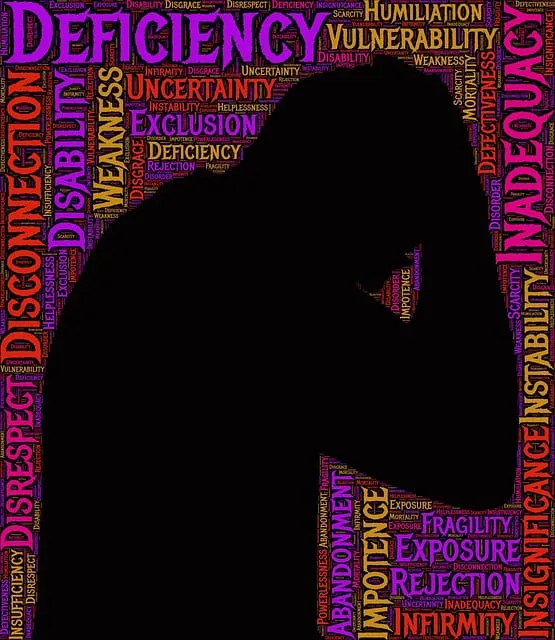The Kaiser Permanente mental health appointment center in Northglenn prioritizes patient safety through comprehensive risk assessment and harm minimization. By evaluating past traumas, symptoms, stressors, and personal factors, they develop tailored plans. Holistic initiatives like stress management workshops and positive thinking programs empower patients with coping mechanisms. Effective communication strategies, self-awareness exercises, and community outreach ensure a supportive environment promoting long-term mental well-being. Continuous monitoring and evaluation adapt strategies to emerging risks, fostering a culture of emotional health promotion.
In the realm of mental health care, risk assessment and harm minimization planning are indispensable tools for ensuring patient safety. This comprehensive guide explores essential aspects of these processes, drawing insights from leading practices at Kaiser Permanente Northglenn, a model for safe care. We delve into understanding risk assessment, identifying potential harms in therapy environments, developing effective minimization strategies, and the importance of continuous improvement through monitoring and adjustment. Leveraging real-world examples, this article offers valuable insights for mental health appointment centers, including Kaiser Permanente Northglenn.
- Understanding Risk Assessment in Mental Health Settings
- Kaiser Permanente Northglenn: A Model for Safe Care
- Identifying Potential Harms in Therapy Environments
- Developing Effective Minimization Strategies
- Continuous Improvement: Monitoring and Adjusting Plans
Understanding Risk Assessment in Mental Health Settings

Risk assessment is a fundamental aspect of providing safe and effective care in mental health settings, such as the Kaiser Permanente mental health appointment center Northglenn. It involves a systematic process of identifying, evaluating, and analyzing potential risks to patients’ well-being. By assessing factors like past traumatic experiences, current symptoms, environmental stressors, and personal risk factors, healthcare professionals can proactively develop harm minimization plans. These plans aim to reduce or eliminate identified dangers, ensuring patient safety and promoting positive outcomes.
The Kaiser Permanente mental health appointment center Northglenn prioritizes a holistic approach to care, incorporating initiatives like Stress Management Workshops Organization, Inner Strength Development, and Positive Thinking programs. These efforts not only empower individuals with coping strategies but also foster resilience, enabling them to navigate challenges effectively. By integrating such practices into risk assessment and harm minimization planning, the center strives to create a supportive environment that nurtures mental well-being.
Kaiser Permanente Northglenn: A Model for Safe Care

Kaiser Permanente Northglenn stands as a beacon for safe and comprehensive care, particularly within its mental health appointment center. This healthcare organization has pioneered effective risk assessment and harm minimization strategies that serve as models for other institutions. By integrating Communication Strategies that foster open dialogue between patients and caregivers, Kaiser Permanente enhances early detection of potential risks. Additionally, they emphasize Self-Awareness Exercises to empower individuals in managing their mental health proactively.
Their success is also attributed to the successful implementation of a Community Outreach Program. This initiative extends care beyond traditional boundaries, ensuring that diverse communities have access to resources and support. Such holistic approaches not only minimize harm but also promote long-term well-being among patients, making Kaiser Permanente Northglenn’s practices worthy of study and emulation in the healthcare sector.
Identifying Potential Harms in Therapy Environments

Identifying potential harms within therapy environments is a critical step in risk assessment and harm minimization planning, especially at facilities like Kaiser Permanente mental health appointment centers in Northglenn. This process involves meticulously scrutinizing various aspects of care delivery to anticipate and mitigate risks that could negatively impact clients’ emotional well-being. It’s not just about identifying physical dangers but also psychological and social risks associated with mental illness stigma reduction efforts.
Effective harm minimization starts by employing robust risk assessment techniques tailored to the unique needs of each client. Mental health professionals at Kaiser Permanente Northglenn must be adept at recognizing factors that could escalate existing conditions or introduce new challenges during therapy sessions. This includes understanding the complexities of individual clients’ backgrounds, histories of trauma, and current psychological states to implement appropriate Emotional Well-being Promotion Techniques. By adopting a proactive approach through comprehensive risk assessments, the center can ensure a safer, more supportive environment for all clients seeking mental health services.
Developing Effective Minimization Strategies

Developing effective minimization strategies is a key aspect of risk assessment at the Kaiser Permanente mental health appointment center in Northglenn. These strategies go beyond simply identifying potential risks; they involve proactive measures to mitigate harm and promote positive outcomes. One powerful approach is incorporating Empathy Building Strategies, which foster open communication and understanding between patients and healthcare providers. By cultivating Mental Health Awareness, staff can anticipate and address concerns early on, preventing issues from escalating.
For instance, depression prevention initiatives can include regular screening during appointments, coupled with educational resources that empower individuals to recognize warning signs. Such proactivity ensures that interventions are timely and tailored to individual needs. This holistic approach not only aligns with the mission of Kaiser Permanente but also contributes to a safer, more supportive environment for all patients engaging in mental health care at Northglenn.
Continuous Improvement: Monitoring and Adjusting Plans

At Kaiser Permanente mental health appointment centers in Northglenn, continuous improvement is a cornerstone of their harm minimization strategy. Regular monitoring and evaluation of risk assessment plans are crucial to ensure their effectiveness. By analyzing data and feedback from patients and healthcare professionals, the center can identify areas for enhancement and adapt strategies accordingly. This dynamic approach allows them to stay ahead of emerging risks and tailor services to better support individual needs, fostering a culture of emotional well-being promotion techniques.
Moreover, integrating positive thinking and self-care practices into the risk management plan further enhances the holistic approach. The center encourages patients to actively participate in their mental health journey, providing tools and resources for self-monitoring and coping strategies. This collaborative effort not only empowers individuals but also contributes to the overall success of harm minimization efforts, ensuring a more sustainable and positive impact on the community’s emotional well-being.
Risk assessment and harm minimization planning are essential components of providing safe and effective care in mental health settings. By understanding these processes, implementing strategies like those seen at Kaiser Permanente Northglenn, and continuously monitoring and adjusting plans, mental health professionals can create environments that mitigate potential harms. Adopting these practices not only ensures the safety of patients but also enhances the overall quality of care, making mental health appointments at centers like Kaiser Permanente Northglenn more secure and beneficial for all involved.






